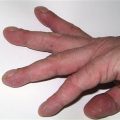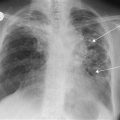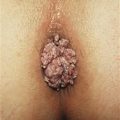Constipation
Constipation is a common complaint that results from decreased frequency of abnormally firm motions for a particular patient. It must be related to the patient’s normal bowel habit. Acute constipation may be due to acute intestinal obstruction (p. 252), generalised abdominal disease, or sudden alteration in routine, e.g. admission to hospital.
History
Congenital
Hirschsprung’s disease usually presents with constipation from birth. Gross abdominal distension may eventually occur. The condition may not be picked up until well into the teens or even early adult life.
Acquired
Obstruction
There may be rapid onset of constipation, although the onset is usually gradual with the patient complaining of colicky abdominal pain, bloating, weight loss, lethargy and occasionally spurious diarrhoea. Constipation may occur from pressure from adjacent organs, e.g. with pregnancy, ovarian cyst or large fibroids. Diverticular disease with or without stricture may cause constipation.
Painful anus
Patients may become constipated from any anal disorder that results in pain on defecation. The most common cause is fissure-in-ano, and other causes include strangulated haemorrhoids (the patient often giving a past history of haemorrhoids), perianal abscess and haemorrhoidectomy.
Adynamic bowel
Paralytic ileus may follow abdominal surgery or abdominal inflammatory conditions. It may also arise following spinal fractures or prolonged bedrest, especially in the elderly. The patient’s main complaint is usually of a distended abdomen.
Endocrine
Check for a history of diabetes as diabetic autonomic neuropathy per se can result in constipation. Myxoedema results in constipation and there may be associated symptoms of cold intolerance, coarse hair and skin changes. Hypercalcaemia (e.g. hyperparathyroidism) is associated with constipation and symptoms include nocturia, nausea, vomiting, abdominal pain and mental disturbances.
Drugs
Take a careful drug history. Chronic laxative abuse may make the bowel ‘lazy’ and result in constipation.
Other
Patients with anxiety or depression may complain of constipation. Symptoms of depression include a change in sleep pattern, waking early and having difficulty getting back to sleep. With irritable bowel syndrome, the patient may complain of constipation or diarrhoea, or both alternating. A change in diet alone can also cause constipation, in patients deliberately trying to lose weight or in those with conditions associated with reduced food intake. Generalised disease, which affects the appetite, particularly results in constipation.
Examination
Obstruction
There will be a distended abdomen with obstructive high-pitched tinkling bowel sounds. The rectum will usually be empty on digital rectal examination. With a diverticular stricture, there may be tenderness in the left iliac fossa. With malignancy, a mass may be palpable in the abdomen.
Painful anus
Inspection of the anus may reveal a chronic fissure-in-ano, strangulated haemorrhoids, or a perianal abscess. With fissure-in-ano, digital rectal examination will be extremely painful, if not impossible. Patients who are post-haemorrhoidectomy may become constipated if appropriate medication has not been given.
Adynamic bowel
The abdomen will be distended and this is often a painless distension. Bowel sounds will be absent. There may be signs of recent surgery. A full neurological examination should be carried out if the cause of the ileus is not apparent.
Endocrine
With diabetes, there will usually be other complications of diabetes. In myxoedema, check carefully for other signs, e.g. coarse and dry hair, large tongue, hoarse voice, slow relaxing reflexes.
For any patient with constipation, a digital rectal examination must be carried out. The rectum may be completely empty with obstruction, or contain rock-hard faecal masses with functional constipation.





